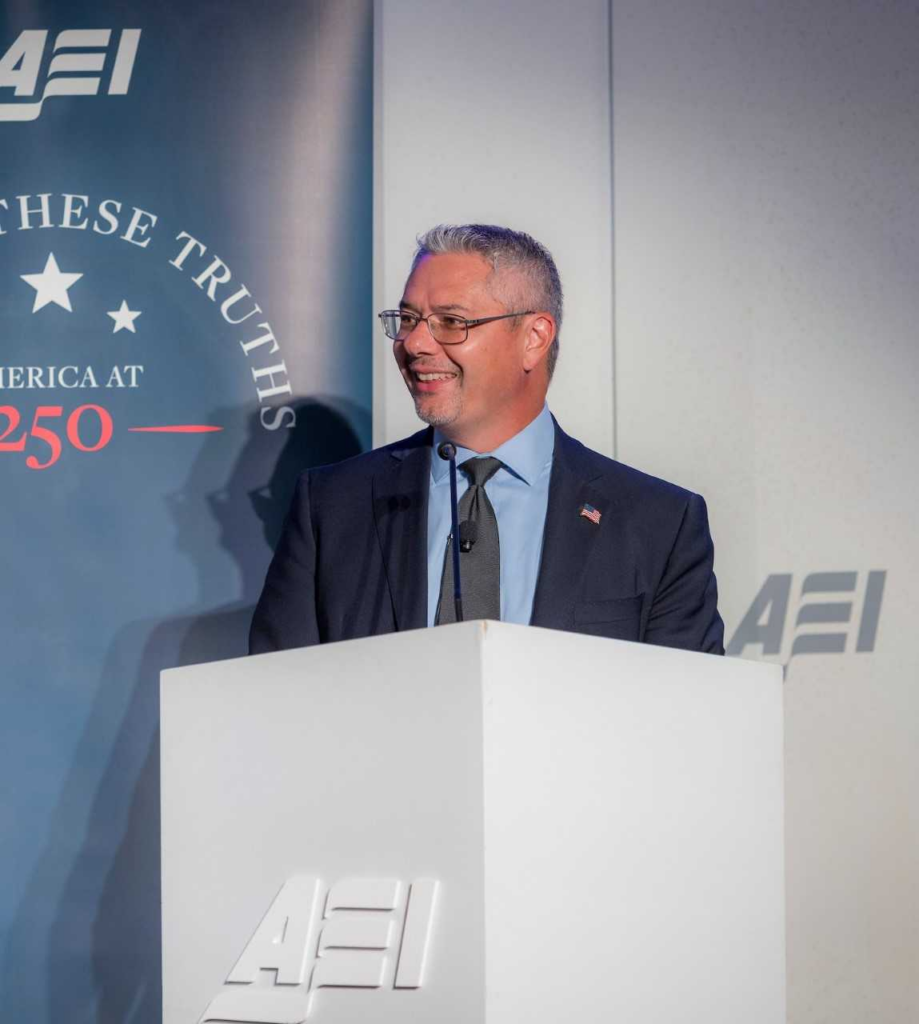
July 4, 2026, will mark the 250th anniversary of the Declaration of Independence and, therefore, of the United States of America. But the Declaration declared more than our independence. It declared, on behalf of the new nation, a commitment to a set of principles rooted in a set of premises. And first among those premises was the equality of all human beings, understood as a function of our equal relation to a creator. The Declaration does not offer a comprehensive theology, but this seemingly simple premise nonetheless roots our society’s political character deep in the soil of the Judeo-Christian West. It does not commit us to a particular church, but it does entangle us with a religious disposition.
“On my arrival in the United States,” Alexis de Tocqueville wrote in the 1830s, “the religious aspect of the country was the first thing that struck my attention.”1 He was not alone. Despite the prevalence of established churches in the Old World, Europeans have historically perceived the United States as a more religious nation than their home countries. America’s civic life has never answered to a specific religious authority, but it has always been marked by a general religious tenor.
The American political project, like the American character, is ultimately indecipherable without recourse to its religious roots. But its relation to those roots has never been a simple matter. There were certainly religious arguments for independence in the age of the founding, but there were also religious arguments against it. Many different religious denominations composed British North America, and they each contributed distinct elements to the amalgam of the new nation, though the tensions between them became internal fissures even among revolutionary brothers-in-arms. The political personality of the newly independent nation, then, could not help but shape the landscape of American religion in turn.
Our nation cannot be understood without a sense of the part that religion played in its founding. And understanding our nation is precisely the purpose of the American Enterprise Institute’s “We Hold These Truths: America at 250” initiative, an ambitious birthday celebration of which this volume forms a part. Over several years leading up to the anniversary of the Declaration of Independence, we are inviting scholars both within AEI and from other institutions to take up a series of themes important to understanding the American Revolution. These scholars represent a variety of fields and viewpoints, so they will approach each of these themes from various angles. The papers they produce will be published in a series of edited volumes intended to help Americans think more deeply and clearly about our nation’s origins, character, and prospects.
Religion and the American Revolution is the third of those books. Its chapters began as papers presented at an AEI conference held in Washington, DC, on September 18, 2024. Other volumes in the series consider the American Revolution in relation to other themes, such as democracy, natural rights, the legacy of slavery, and the Constitution. In each case, our goal is to help reintroduce readers to their nation’s history, thereby enabling them to maturely appreciate the reasons for celebrating the extraordinary milestone of its 250th birthday.

In the chapters that follow, five eminent scholars of history, theology, law, and political philosophy consider how we ought to understand the place of religion in the American Revolution—and the influence of the Revolution on American religion.
Michael W. McConnell surveys the breadth of American religious communities in the founding era and the influence of their distinct theologies and institutional forms on the character of American republicanism.
Thomas S. Kidd considers several forms of the religious case for the Revolution and reflects on the ways Americans sought divine sanction and biblical warrant for their political leap of faith.
Jane E. Calvert traces the infamous tension between John Adams and John Dickinson, noting the connections between their respective roots in Quaker and Puritan communities and their approaches to freedom and political authority.
Meir Y. Soloveichik contrasts Adams’s religious disposition with that of another rival, Thomas Jefferson. Combining this analysis with a meditation on John Trumbull’s Declaration of Independence, he insists on the Judeo-Christian vision’s centrality for the self-understanding of the early American republic.
And Vincent Phillip Muñoz views the founding not just as a product of the interplay of reason and revelation but as launching a new understanding of the foundations of political authority, rooted in a recognition of the existence of religious truth and the legitimacy of religious authority.
The breadth of the arguments advanced in these chapters offers a sense of just how broad the influence of religious ideas was on the founding—and just how profoundly those ideas have shaped the nation that declared its independence on that July day a quarter millennium ago.


